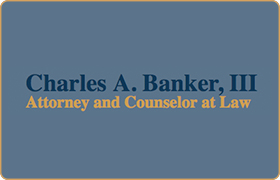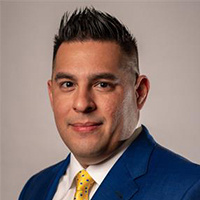 Barker Felony Lawyers, Texas
Barker Felony Lawyers, Texas
Sponsored Law Firm
-
 x
x

Click For More Info:
-
Charles Banker, Attorney at Law
405 Main St. Ste. 910 Houston, TX 77002» view mapCriminal 30 Years Experience
You need an attorney with criminal defense knowledge who will vigorously protect your rights.
800-969-9880
Sponsored Lawyers
1-10 of 13 matches
Criminal, DUI-DWI, Misdemeanor, Felony, White Collar Crime
Mr. Capetillo was born, raised, and still resides in Fort Bend County, Texas. He graduated from B.F. Terry High School as a fighting Terry Ranger Baseball Player. He continued his education and earned a Bachelor’s of Business Administration in Accounting from the University of Houston while working part-time in Houston’s Oil & Gas industry in various tax related roles. After graduation, he accepted an offer from the world’s largest publicly traded international oil and gas company and worked in their tax department while attending night classes at South Texas College of Law. In his last semester at STCL, Mr. Capetillo secured an internship at the Harris County Public Defender’s Office in downtown Houston. His experience with the Public Defender’s office allowed him to gain hands-on experience defending individuals who had been accused of crimes while learning the importance of zealous legal representation through the criminal legal process.
(more)DUI-DWI, Criminal, Misdemeanor, Felony, White Collar Crime
Doug Murphy stands as a prominent figure in the legal realm of Houston, Texas, with a focus on Criminal Law and DWI Defense. His career, which began in 1999 with the establishment of Murphy & McKinney Law Firm, P.C., showcases a deep commitment to justice and legal proficiency. As President of the Harris County Criminal Lawyers Association and a member of the Board of Regents for the National College for DUI Defense, Doug's role in the legal community is marked by leadership and advocacy. Recognized consistently in listings like Best Lawyers in America and as a Texas Super Lawyer since 2009, Doug's achievements highlight his dedication to his practice. His significant role in revealing flaws in the Houston Police Department's breath alcohol testing vans led to his receiving the Sharon Levine Unsung Hero Lawyer of the Year Award in 2012, demonstrating his commitment to fairness in legal practices. Lauded by the Houston Press as the “Drinking Driver’s Best Friend,” Doug's influence extends beyond individual cases to broader systemic change and advocacy for equitable legal standards. Doug's practice covers a wide range of criminal cases, with an emphasis on DWI defense. His approach melds a comprehensive understanding of the law with a compassionate grasp of his clients' situations, ensuring they receive not just robust legal representation but also respectful and dignified treatment. Beyond his practice, Doug is a leader in legal discussions, evidenced by his numerous speaking engagements and contributions to publications. Fluent in Spanish, he reaches a diverse clientele, focusing on inclusivity and accessibility. In essence, Doug Murphy is more than just a lawyer; he is a key figure in the Houston legal community, an advocate for justice, and a dedicated representative for his clients. His unwavering commitment to excellence in criminal law and DWI defense makes him a distinguished choice for legal representation in Houston, Texas.
(more)Criminal, DUI-DWI, Felony, Juvenile Law
Mr. Banker is a board certified specialist in criminal law with 30 years experience. He is dedicated to the best interest and well-being of those he represents, and with whom he is a true “brother in arms”. As such, he advocates for the success of his clients in courts of law all over Texas and the United States. A native Texan, Mr. Banker was born and raised in the Houston area. He graduated with Honors from the University of Texas at Austin and received his Law degree (J.D.) from the University of Houston Law Center. In between these degrees, Mr. Banker achieved a Master’s degree in Theology from Regent College, and a Master’s in Legal and Constitutional History from Rice University. Additionally, Mr. Banker has travelled extensively throughout Latin America and is fluent in the Spanish language. All this training and education has prepared Mr. Banker for what he believes is his vocational “calling” in life: To stand with and defend those who have found themselves in the very difficult circumstance of facing judgment in a court of law. As a Christian lawyer, he believes that helping people through difficult times is a natural outworking of this faith. Additionally, he counsels his clients to ultimately look to God as their helper, and see that adversity often produces more strength of character and greater faith in Him. Over the years, Mr. Banker has been involved in several “high profile” cases. One of which involved his representation of a high ranking member of the separatist group, the Republic of Texas. Several members had been charged in Federal Court in Dallas with bank fraud. After a month long trial, Mr. Banker’s client was the only one of the nine defendants found "not guilty". Another case involved the owner of a bus company, whose bus caught on fire when evacuating the Houston area because if Hurricane Rita. More than a dozen elderly people were killed in the accident. Mr. Banker’s client was charged in Federal Court in McAllen with several counts involving the operation of his buses. He was found “not guilty” of the felony charges that could have put him in prison for up to ten years, and given probation for two minor misdemeanors. On a personal note, Mr. Banker has been happily married to his wife Rose for over 20 years, and he has been actively involved in the lives of their children, Stevan, Faith and Joshua. They are members of Christ Family Church, where Mr. Banker teaches Sunday school and has been active in leadership for many years.
(more)


 Charles Banker Houston, TX
Charles Banker Houston, TX AboutCharles Banker, Attorney at Law
AboutCharles Banker, Attorney at Law Practice AreasExpertise
Practice AreasExpertise



